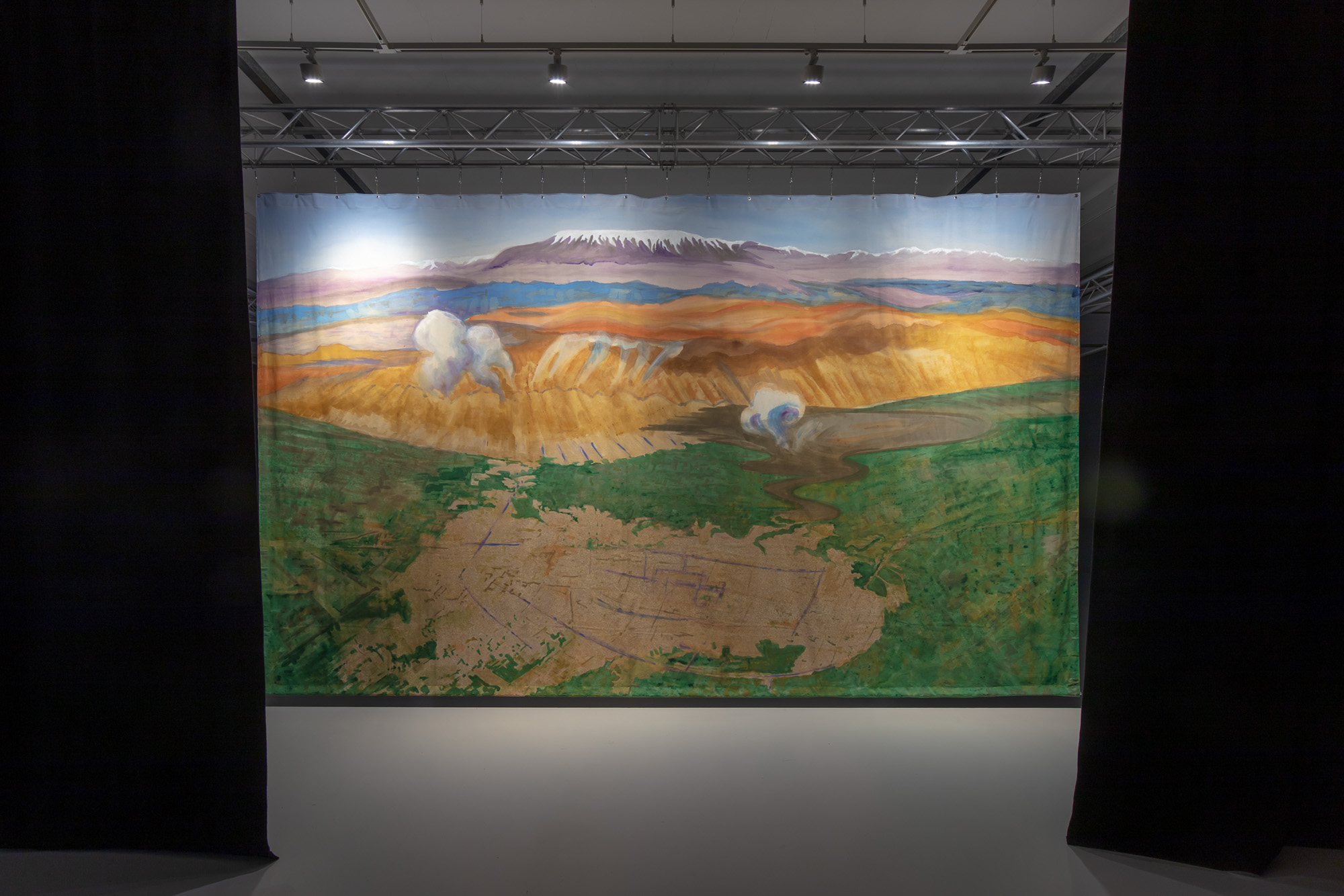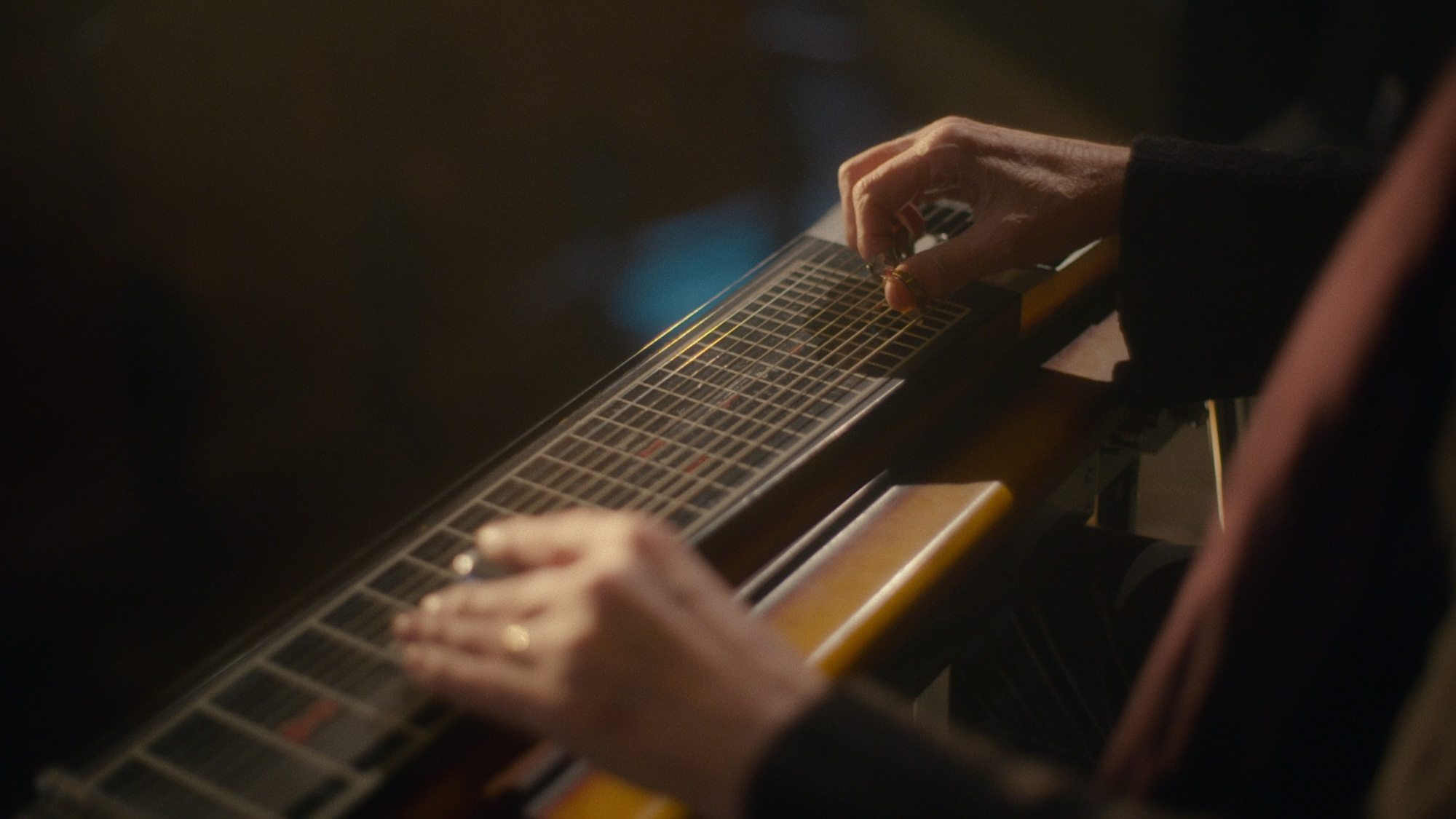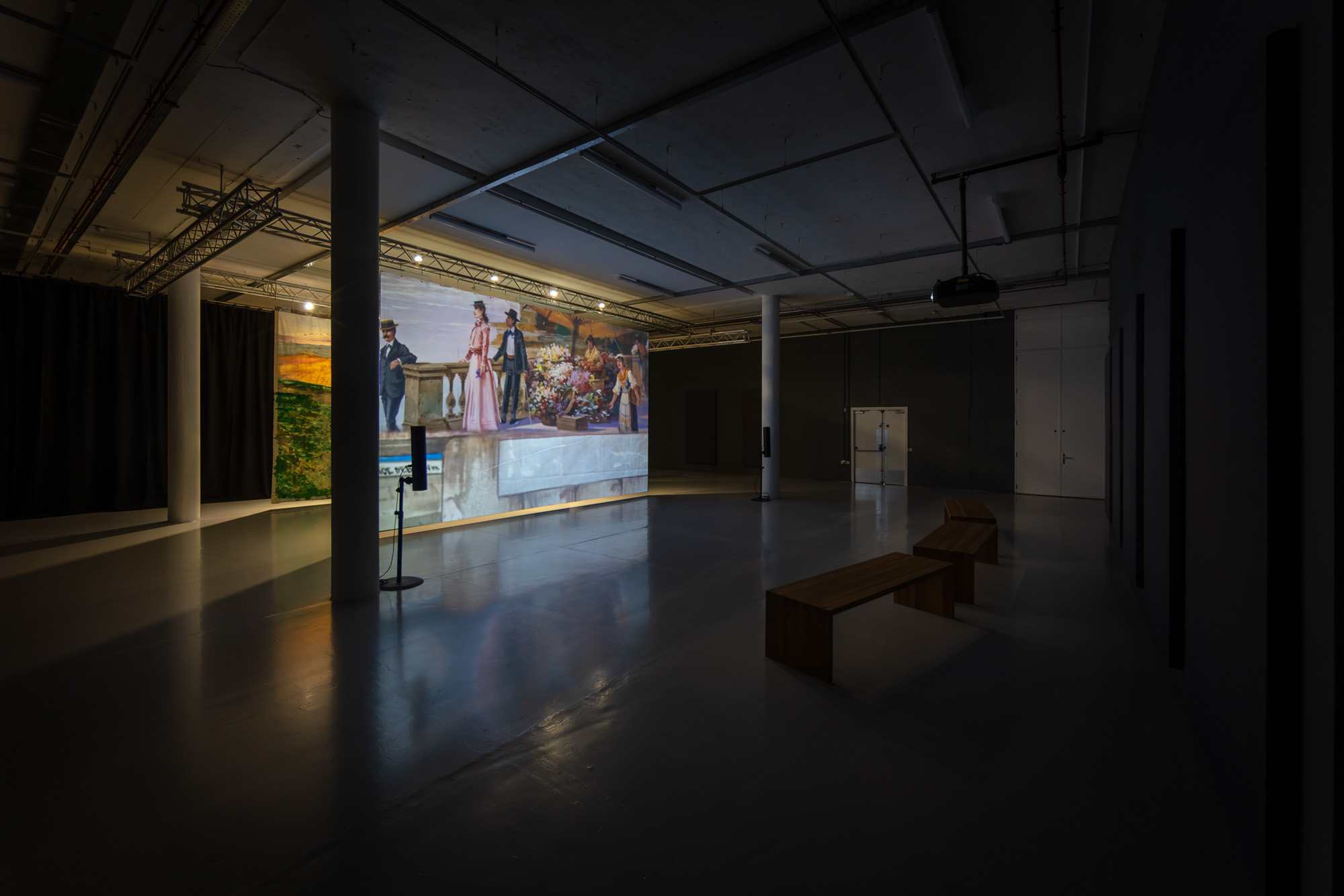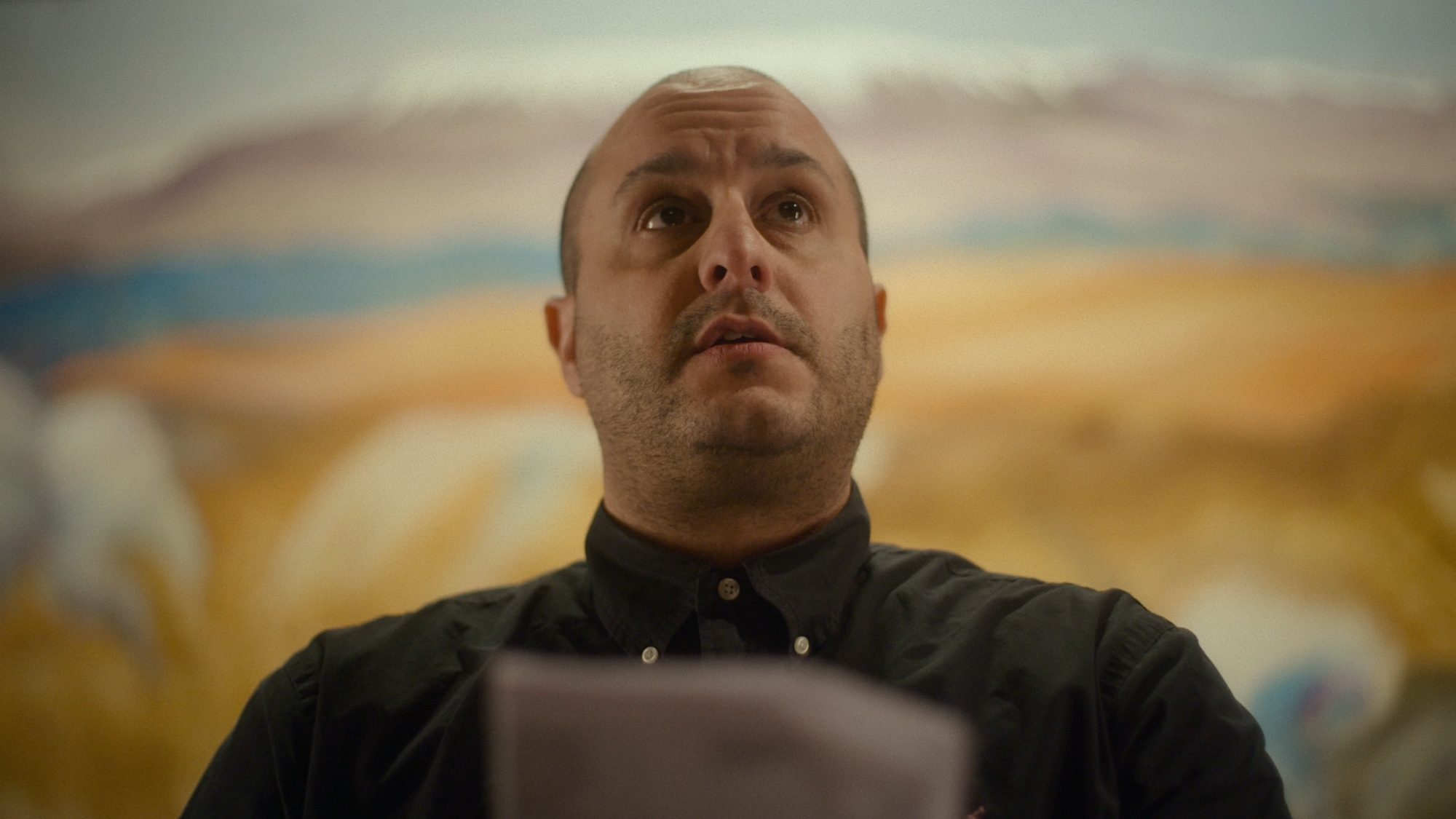Shows
The Deadly Absurdity of Borders: Lawrence Abu Hamdan’s “45th Parallel”
.jpg)
.jpg)
Symbolic, arbitrary, and deadly, borders take on multiple meanings in Lawrence Abu Hamdan’s 2022 film, 45th Parallel, recently shown at Spike Island art space in Bristol. The setting for this razor-sharp study typical of the Beirut-based artist is the Haskell Free Library and Opera House, a site that straddles the United States–Canada border between Stanstead, Quebec, and Derby Line, Vermont. The work comprises a monologue delivered by filmmaker Mahdi Fleifel, recounting chapters from the venue’s recent history and the 2010 cross-border killing of an unarmed Mexican boy Sergio Adrian Hernández Güereca by US border agent Jesus Mesa. Abu Hamdan’s narrative teases a parallel world in which the teenager’s killer is prosecuted, triggering landslide implications.
The work is part portrait of the opera house and library, which opened in 1904 and 1905 respectively. All wood-paneled walls and window blinds, the library is typical of a small town; a 400-seat opera house is located on the second floor. The only clue to the facility’s unique geography is a thick black line running along the floor, possibly made of electrical tape, demarcating the border between the two countries.
Access is via the US, and Canadians may enter and leave without a visa, following a specified route. Although a police officer is continually stationed outside, once inside, the border becomes moot, and visitors can move freely within the space. In 2011, this jurisdictional gray zone was exploited by smugglers who would exchange guns in the toilets. In 2017, its administrative ambiguity lent itself to compassion in the wake of Executive Order 13769, dubbed the “Muslim ban,” passed by president Donald Trump. Those from the affected countries, who were denied US visas, would travel to Canada for reunions with loved ones.

.jpg)
Unfolding in the empty opera house, the meat of Fleifel’s monologue centers on the killing of Hernández by Mesa and the ensuing judicial case. Rows of wooden chairs positioned in a semi-circle mirror the setup of the benches inside the gallery, and exhibition visitors pass through the same heavy black curtains that bookend the on-screen stage. A plaster relief of lute-playing cherubs and bunches of grapes circles the theater’s upper gallery. On stage is pedal steel guitarist and composer Susan Alcorn, against a backdrop of Venice. Painted with elegant figures and classical architecture, the contrast with Fleifel’s gritty narrative is pointed. Abruptly, the music becomes tense. The backdrop lifts to reveal a painted scene of a concrete graffitied bridge: the site of Hernández’s killing.

Evoking a lawyer addressing a court, Fleifel recounts the facts of the case. He gestures close to the border line to demonstrate how Mesa’s feet were just three inches inside US soil when the lethal shot was fired. “Did the bullet bring US constitutional rights, or did Hernández’s rights, unlike the bullet, stop at the border?” This was the crux of the ensuing protracted court case that was finally decided in 2020. The Supreme Court ruled in favor of Mesa; because Hernández was killed in Mexico, the border agent could not be prosecuted in the US.
The backdrop lifts again to reveal a third scene based on a view of Damascus by British artist Richard Carline, known for his portrayals of aerial combat during World War One. The setting and subject make subtle reference to more than a century of border violence. Both backdrops were on display at Spike Island.
Fleifel takes to the stage and pulls out a list from his pocket. He deadpans a litany of drone strikes remotely launched from satellite networks on US soil, responsible for thousands of civilian deaths in the Middle East. The weight of the implication of Hernandez v. Mesa becomes clear: had the killing by the border patrol agent been prosecuted in the US, so too could 91,340 drone strikes.
.jpg)
Although the work’s physical setting—the Haskell Free Library and Opera House—is primarily a compelling case study for the absurdity of borders, as a place of literature, music, and community, the site also speaks to an ideal of art: unrestricted, international, and above all, without borders.
Lawrence Abu Hamdan’s “45th Parallel” was on view at Spike Island in Bristol from October 8 to January 29, 2023.







